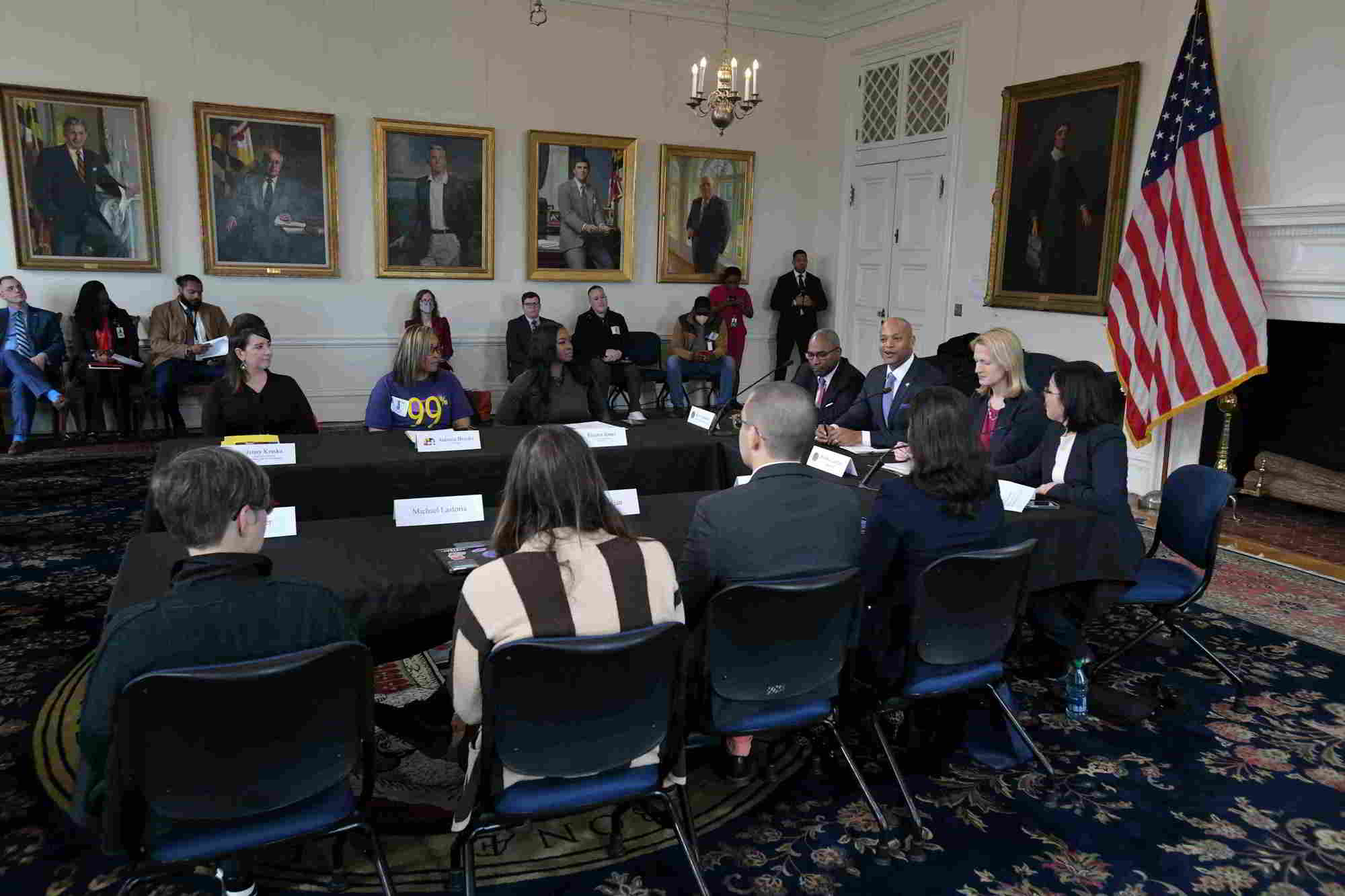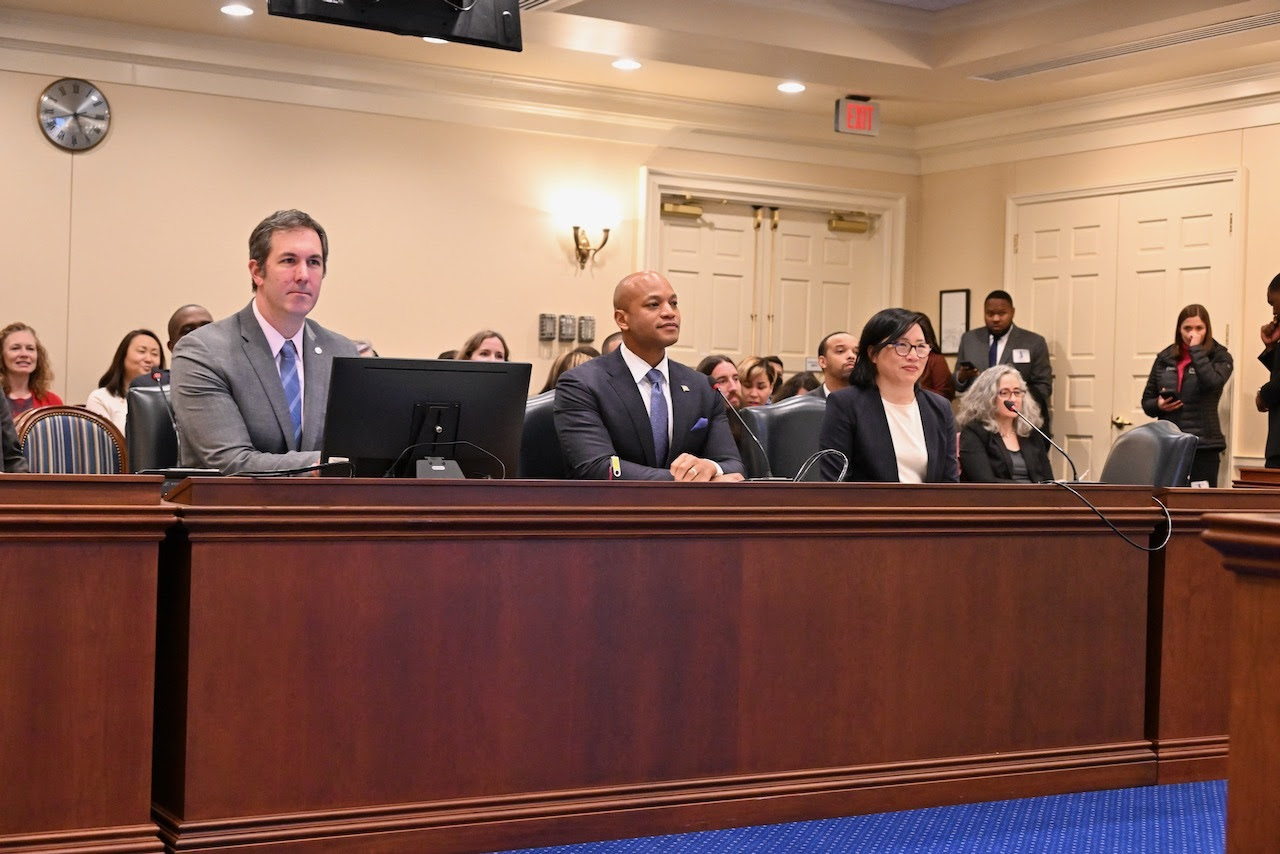ANNAPOLIS, MD — Governor Wes Moore today hosted a community round table at the State House and testified in the Maryland House Economic Matters Committee Hearing in support of the Fair Wage Act, presented as HB 549. The legislation accelerates the planned increase to a $15 minimum wage, fully implementing the increase for all covered employers as of October 1, 2023.
“I believe that we can be a state that lifts up both workers and businesses. I believe that we can help families thrive economically, and help businesses to grow. Those who say it’s one or the other are offering a false choice,” said Governor Moore. “My legislative agenda rejects that false choice. It proposes new investments in Maryland’s economic competitiveness and invests in the innovation economy. These proposals will help Maryland businesses to grow and support the next generation of small business owners.”

The Fair Wage Act will also increase the family income of hundreds of thousands of Marylanders, including approximately 126,000 Maryland children. The bill indexes the minimum wage to the Consumer Price Index beginning on July 1, 2025, capped at 5% per year. Indexing allows for employee wages to keep pace with inflation and provides more predictability for businesses who are able to plan around regularly scheduled, incremental increases in labor costs.
Participants in today’s roundtable included Comptroller Brooke Lierman; Maryland Department of Labor Acting Secretary Portia Wu; Maryland Department of Commerce Acting Secretary Kevin A. Anderson; small business owners, advocates, and workers. The session offered the opportunity for leadership from across the Moore-Miller administration to hear directly from Marylanders about how fair wages help families thrive and help businesses stay competitive.
“I was thrilled to participate in this discussion with business owners and advocates on the importance of the Governor’s Fair Wage Act legislation that accelerates the phase-in of the $15 minimum wage and indexes it to the Consumer Price Index for future years,” said Comptroller Brooke Lierman. “Our state's economy is stronger when more Marylanders are able to earn enough money to support their families, and this legislation is a step in that direction."
“Increasing the minimum wage to keep up with inflation not only helps workers to support themselves and their families but also ensures they have the stability to pursue greater opportunity,” said Maryland Department of Labor Acting Secretary Wu. "The sensible wage increases in the Fair Wage Act will help Maryland to keep pace with other leading states in our region and across the country and strengthen our economy through expanding Maryland’s workforce, supporting stable jobs, and improving productivity."
“Fair wages have the benefit of making businesses more competitive and giving them an edge by improving the culture of their workplace and making it easier to attract and, most importantly, retain talented employees,” said Maryland Commerce Acting Secretary Anderson. “When workers are paid wages that keep up with inflation, that translates into a more productive and stable workforce and better customer service which ultimately results in a greater bottom line for businesses.”

"Minimum wage increases don’t go into workers’ pockets and disappear; the money recirculates as spending at local businesses like ours,” said Gina Schaefer, A Few Cool Hardware Stores Owner. “Whole communities are strengthened; and investing in employees is the best investment a business can make. Customers keep coming back to businesses where employees are happy to work and deliver great customer service.”